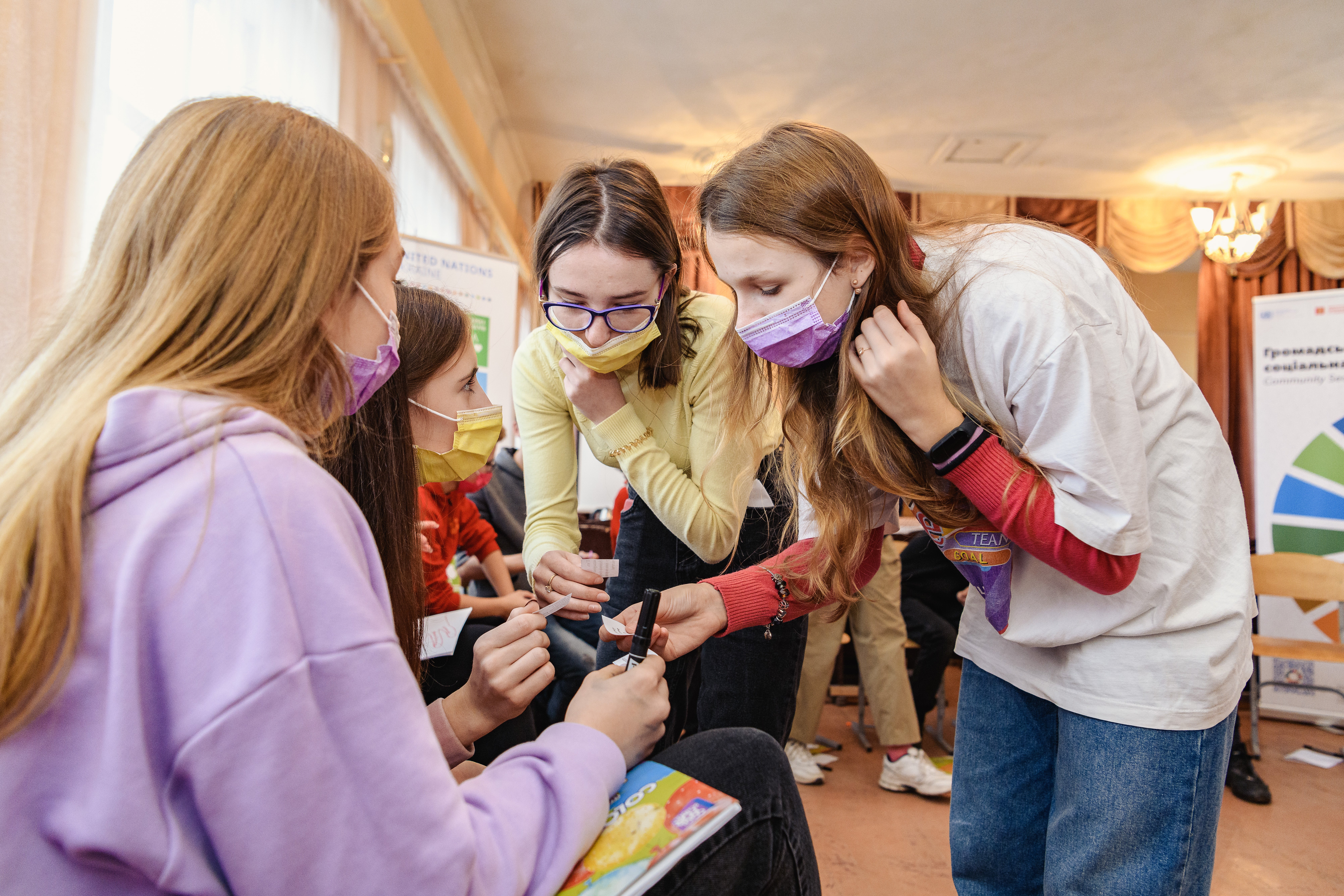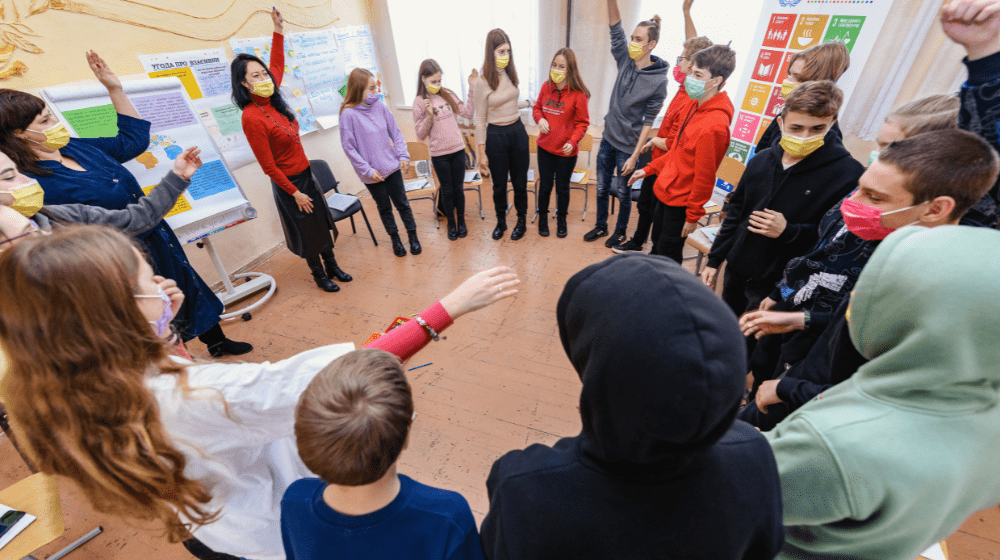In the spring, a study was conducted in Luhansk and Zaporizhia regions to assess the life skills needs of vulnerable adolescents, and identified important competencies to be developed. The primary competencies for adolescents include self-assessment, self-development, self-learning, effective communication and developing a professional identity.
We have further developed a new training programme for adolescents aged 14-17, aimed at developing life skills and competencies of the 21st century in collaboration with experts from the Department of Social Pedagogy and Special Education of Zaporizhia National University and the Resource Centre for Inclusive Education of the Luhansk Regional Institute of Postgraduate Pedagogical Education.

Our goal is to help adolescents form and strengthen healthy self-esteem as a positive self-perception, understanding and acceptance of their weaknesses, satisfaction with their strengths, a realistic belief in their equality with others. Adolescents with healthy self-esteem know and accept themselves, are able to empathise, act honestly and openly, apply healthy behavioural approaches to overcoming challenges of life. They are confident in their worth despite changing external circumstances, convinced of the value of others and respect it.
The programme will help teenagers learn, understand and appreciate their true, unique identity, develop skills that will allow them to grow up and choose their path and travel it confidently, calmly and with dignity.
The first pilot training for the teenagers of the Luhansk region and a tutorial workshop for therapists and child and youth counsellors of educational institutions of the Luhansk region was held as part of cooperation with and under the auspices of the UN Recovery and Peacebuilding Programme, the UN Population Fund, the Directorate of Preschool, School, Extracurricular and Inclusive Education of the Ministry of Education and Science of Ukraine.
Here is what the teenagers of Rubizhne said after the training: “I think that after the training, my view of people will change and I will be able to help those who do not attend any training; my attitude to everything around us will change; I will have more responsibility, the desire to discover something new for myself; my behaviour will change for the better; my attitude to some professions will change, as will my teamwork skills. The thing I liked most was that we became a team during the training; instead of sad lectures, there are practical games and activities, a lot of discussions, and everyone is a part of one big circle where there is no place for hang-ups.”
Stay tuned! We hope for fruitful cooperation with educators of Zaporizhia in December as we finalise the programme and offer it for implementation to educational institutions of Ukraine.


